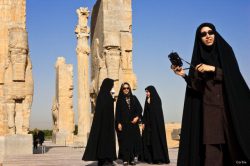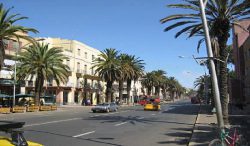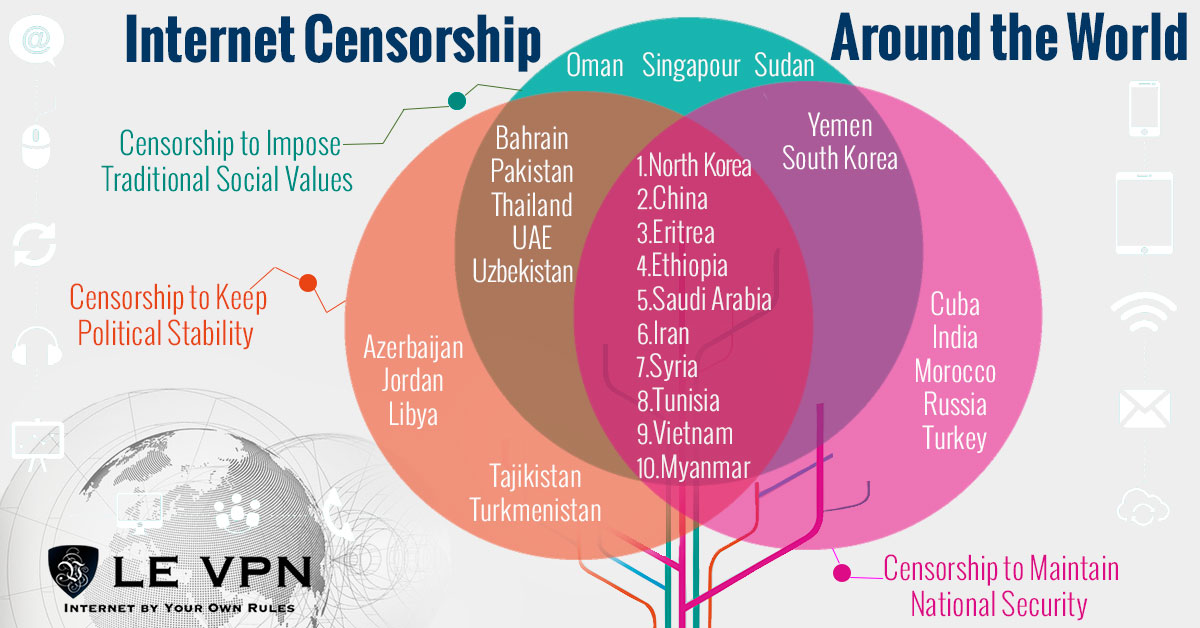Internet censorship is a growing problem worldwide. Bloggers, journalists and average internet users are finding it more and more difficult to access the content they seek.
Internet Censorship Around The World
In this age of instant information, you’d think that access would be unlimited. After all, the Internet is only a click away. The sad truth is, many countries around the world seek to limit outside influences and therefor block internet connections and censor content whenever and wherever possible. The good news for most users is that there is VPN to bypass censorship. This article is a look at the top countries currently censoring access to the Internet and ways that you can avoid internet censorship no matter what country you are located in.
At stake is more than just access to what may be considered “objectionable” material. Bloggers, journalists and average citizens are being jailed or worse. According to the Committee To Protect Journalists most of the top censoring countries also top the list of those with the worst records for jailing journalists. More than half of the journalists imprisoned world wide are in jail for “crimes against the state”. China is the top of this list followed by a coalition of Middle Eastern nations which work in conjunction to block any information detrimental to any governments in the region. While political ideology, usually communism, is the most obvious source of censorship it is not limited to this. Religion and specifically Muslim dominated countries are also prominent censors of “subversive” material.
Top 10 Countries with the Most Heavily Censored Internet:
10. Myanmar (Burma)

9. Vietnam

8. Tunisia

7. Syria

6. Iran

5. Saudi Arabia

4. Ethiopia

3. Eritrea

2. China

1. North Korea

The list above details the top ten internet censors worldwide but by no means is comprehensive. There are dozens of other countries actively blocking access to the Internet, repressing journalists and otherwise impeding the free flow of information. The degrees vary but in the end, censorship is censorship.
Turkmenistan only allows one internet provider, the government. It blocks access to many sites across the web and monitors all email traffic. There are no outside reporters allowed into the country and the control of media is so dominating that it is nearly impossible to get information out.
In Azerbaijan offices are raided, advertisers are threatened and trumped up drug charges are used to dissuade journalistic activity.
Turkey empowered its government to censor the Internet at will in mid 2014. The move was intended to block dissent among the populace and was a step backward for an otherwise progressive country. The new law requires service providers to keep 2 years of records on all users and to remove objectionable content within 4 hours.
Cuba tightly controls internet access in a number of ways although it has been making some progress. First, users may only get online through official access points. Usage is limited through IP and keyword blocking, browsing history is monitored and only approved pro-government individuals are allowed to upload content. There is some amount of journalistic freedom but the threat of harassment and/or jail still hangs over the population.
Censorship Of Social Media Sites
While there are dozens of countries actively censoring the media, access to the Internet and emails, there are only about a half dozen countries known to censor social media. Of those, the most alarming is Turkey because it is a budding democracy, member of NATO and prospective member of the EU. The mitigating factor, if it can be counted as one, is that Turkey does not impose a complete ban on social media, only when the “political environment dictates”. Two such times include a hostage crisis perpetrated by Marxist rebels in 2015 and during a political corruption scandal in 2014.
North Korea is the only country aside from China known to completely block access to global social media, by restricting its citizens to the local intranet. Residents of other countries, including Turkey, can unblock social media sites with VPN, virtual private network.
Is Online Censorship Spreading To The Free World?
If French authorities get their way, censorship of the Internet could reach new global heights, and even enter into the lives of Americans. The French National Committee on Informatics and Liberties (CNIL) made a move in mid-2015 that could make that possible. The CNIL ordered search engine and web services provider Google to comply with the EU’s “right to be forgotten” rules. The order was intended to affect all of Google’s activities worldwide but as yet the company has not complied. If it is enforced critics say it will bring “unprecedented” censorship of the Internet that would include the United States.
The right-to-be-forgotten rules were first implemented earlier in 2015, when a Spanish citizen brought a case before the European Court of Justice. Mario Costeja Gonzalez sued Google over a breach of privacy when it was discovered a news article dating back to 1998 was showing in search results. The article, pertaining to a repossession due to tax debt, was accurate but viewed as defamatory by Mr. Gonzalez as the debts have long since been repaid. The court ruled that Google and other search engines would have to remove links to information that were deemed “inadequate, irrelevant, no longer relevant, or excessive”. The ruling did not apply to the original source, the website which published the story, only to the search engines and access to the story through Internet search.
Since the original ruling and Google’s refusal to comply, additional guidelines have been suggested. These include considerations of the information’s accuracy, if it pertains to public figures, if criminal offenses are involved and if the information is fact or opinion. To date, these remain guidelines only and are being applied on a case-by-case basis. Google, which reportedly accounts for roughly 90% of European searches, revealed that within the first month they had received requests to de-list over a million URLs. In addition to de-listing, furthering the scope of censorship, search engines are not even allowed to reveal which URLs have been removed from search as it could draw undue attention to the very information being suppressed.
The major criticism of the ruling is that it violates the basic principals of free speech and freedom of the press. A few news outlets, including the BBC, have taken it upon themselves to reveal any information or URLs they believe has been hidden from public scrutiny but it has done little to curb what has become an international precedent.
Is There A Solution To Online Censorship?
Thankfully there are as many people, businesses and politicians seeking to curb censorship as there are those seeking to implement it. For the average world citizen a VPN to unblock websites can be used. A VPN, virtual private network, is a web-based service that changes IP addresses, circumventing online filters and allowing users free access to the Internet. One such is Le VPN, the leading platform for bypassing internet censorship. With their service it is possible to bypass censorship; users connect with the closest VPN server, of which there are over a hundred worldwide, and gain the benefits of encryption keeping them clear of censors while also protecting personal information, identity and browsing habits.
The services provided; VPN to unblock YouTube, VPN to unblock Twitter and any other website, do not solely benefit the residents of suppressed countries. Those traveling abroad will find themselves blocked when entering these countries. For instance, if in China, visitors would find themselves blocked from Google, Facebook and YouTube and many other website, not just social media, so VPN would be a viable solution. Le VPN offers 3 distinct VPN protocols to help internet users customize performance tailored to their needs, providing IP addresses in 100+ locations. These include PPTP, OpenVPN, and L2TP over IPSEC. If you want to watch any YouTube video anywhere in the world this is the service for you.
The HybridVPN by Le VPN is the latest in virtual private network technology and only available from Le-VPN. It combines AES-256 level encryption with a SmartDNS proxy that allows users to access geo-restricted content and also provides high speed connections. The service also automatically connects to websites Le-VPN has pre-unblocked providing high speed streaming of media from the list.
Internet Censorship Is Here To Stay
It is likely that censorship, and internet censorship, is here to stay. Be it political, ideological, religious or other there will always be someone, somewhere, who wants to block access to the spread of information and content. While it will never be possible to completely end suppression of information there are ways to get around it. VPNs are only one way but perhaps the most reliable available to internet users today.
If you are planning to visit any of the countries on our top ten list you should consider getting a VPN before you go. Le VPN can be installed on Android or iOS devices as well, allowing complete access to all your favorite apps like Facebook, Instagram, Twitter and even Google Maps. The only thing keeping you from the content you want is you. Why wait for censors to block you from the content you want? If you want to unblock social media website with VPN, get Le VPN now.
*Article updated on July 25th, 2018*
SUMMER SALE
First 3 years for $2.22/mo
NO LOGS
100+ LOCATIONS
P2P ALLOWED
Easy To Use
30-Day Money Back
Friendly Support
Bitcoin Accepted
Ultra High Speeds






Written by Vuk Mujović @VukMujovic
Vuk Mujović is the founder of MacTíre Consulting, an analyst, data management expert, and a long-term writer on all things business & tech. He authored blogs, articles, and opinion pieces aimed to help both companies and individuals achieve growth without compromising their security. Vuk is a regular guest author to Le VPN Blog since January 2018, where he gives his expert opinion on the topics related to cybersecurity, privacy, online freedom, and personal data protection. He also often shares his tips and best practices in relation to internet security and digital safety of private individuals and small businesses, including some additional applications of using a VPN service.
Comments (12)
You can easily add Norway to the list. Norway does not have many laws against internet content, but they have a few with such a wide possibility of interpretation that nearly anything that can offend any type of authorities, can be and is rutinously deleted. Especially critic of health authorities, child protective agencies and the like is heavily censored.
Also Norway has an absurdely wide definition of child pornography that is actively used to block content regarding children when this content bears some elements of critic against the way the society handles children.
Norway also has a pornography paragraph and an ully paragraph about decent content that can be used to block or delete any content with nudity which is actively used when authorities for some reason do not like the content.
The censordhip is excerted through a silent agreement between the great media and the authorities.
I am planning to visit Iran and Syria, any vpn that works in those countries? Just curious about the other countries though.
Hello Anna! Yes, Le VPN works fine in both of this countries, but you need to download it before going to any of the censored countries from the list as it might not be possible to do it once you are there. Wishing you a pleasant trip and a great experience with Le VPN!
I know this is from 2016. But I just wanted to say that you’re wrong about Vietnam. They do have internet censorship. And it is very unfair. But you make it seem as if Vietnam is China 2.0. You should take them off this list because despite having censorship. It’s censorship isn’t really that harsh. The only way you can get arrested for doing something on the internet is by trashing the government. Just because Vietnam and China are next to each other and both communist doesn’t make Vietnam China or North Korea 2.0. Porn is illegal in Vietnam. Even internet porn. But no, they are not going to arrest you for it. The government really doesn’t care. You wanna watch it watch it. It’s one of those laws that nobody really pays attention to. The only case where you will be arrested for watching porn is if you anger the government somehow. They will say the reason isn’t for watching porn but no it is just because they want you dead lol. YouTube and google aren’t blocked. It’s honestly pissing me off hearing people saying YouTube is blocked. Like that’s actually the funniest shit I’ve heard in my life. Just because Vietnam is a communist country doesn’t make it North Korea. Vietnam is one of those “democratic communist” countries if that makes sense. By that I mean Vietnam still has some corruption due to commmunism but pretty much the only bad thing is not allowing anti government shit. To sum this up basically Vietnam really doesn’t give a fuck unless your trashing the government. I am visiting Vietnam currently and absolutely nothing is blocked. The only thing that’s shit is the shitty internet. The shitty rain ever 2 hours. And all these fucking ants.
Now major porn websites are blocked.
Would like to see an update! Since 26 march 2019, EU should be on the Top Ten list of most heavily censored internet. EU are for example more censored than Ethipoia (number 5) though EU censores social media. Ethiopia doesn’t.
EU has found a much more efficient way to censorship; every website or portal for bloggers, vloggers or social media is resposible for any comment or upload from anyone one their portals, and everything on the web must be checked before letting it out on the internet. Also websites from outside EU is blocked if they do not follow EU regulations for example: social media must have an “automatic censormachine”. So maybe EU might climb even higher than number 5? We might not lose our heads if we break the rules but has any other country/union succeeded to implement a censorship system as efficient as EU?
Hello le vpn! This article is very interesting and informative. I just want to know if i could cite this as one of my references for the book i am currently writing and if i could use the diagram presented here. Of course, citation will be properly observed. Thank you in advance.
Hi Felix! Our marketing team will send you an email!
Hi,can Le VPN work in China?
What i don’t understood is in truth how you’re now not really a lot more neatly-favored than you may be now. You’re so intelligent. You recognize therefore considerably when it comes to this subject, produced me in my opinion consider it from numerous various angles. Its like men and women aren’t fascinated unless it’s one thing to do with Woman gaga! Your personal stuffs excellent. At all times deal with it up!|